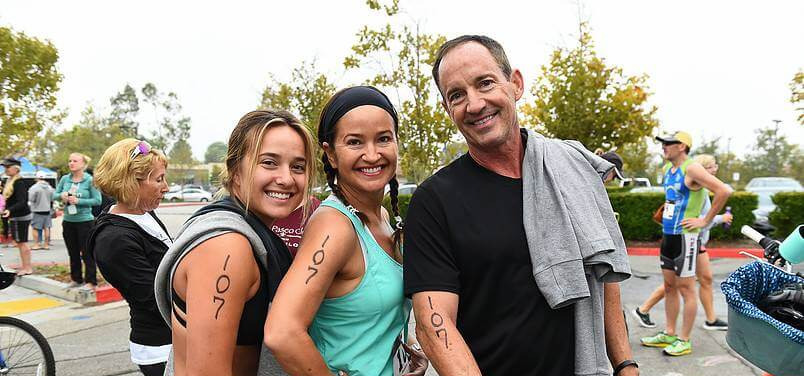Why your fitness routine does not matter if you are not eating right, managing stress, and getting enough good quality sleep
January 6th, 2023 | 4 min. read
By Jen Azevedo

We hit the gym. We lift the weights. We spin on the bikes. We sprint on the treadmill.
We sweat. We pant. We strain. We push.
And yet those ten pounds, upper arm flaps, muffin top, beer belly, etc. persist.
Why is our fitness routine not enough to achieve the results we want?
Exercise may be the cornerstone of good health, but it is insufficient on its own. Nutrition, stress management, and sleep are also essential pieces of the puzzle too.
The Paseo Club is a social club in the Santa Clarita Valley. The club’s grounds are spread over eight acres and have pickleball and tennis courts, gym facilities, and a junior-Olympic size pool.
Our instructors have been supporting member’s in their quest for optimum health for almost twenty years. They are frequently asked for advice about how to get fitter.
In this article, we will share with you why exercise is not the only factor to focus on to obtain peak fitness. Learn why what you eat, your mental health, and the quality of your sleep radically affect how you feel and look.
How do nutrition, stress, sleep, and workout performance relate?
Humans are complex beings shaped by all aspects of our lives.
Nutrition, sleep, stress levels, and exercise are all interconnected and influenced by one another in many ways. Each is important to your overall well-being — one cannot replace another.
When you eat poorly, it can affect your sleep, your mood, and your athletic performance. A poor night’s sleep often leads to bad diet choices and a mediocre workout, making you feel disappointed and/or stressed. And the list goes on.
Nutrition
Imagine your body is a machine. And like all machines, it needs the proper fuel to function correctly.
Many adults — even ones who prioritize their health and fitness — do not eat a balanced diet. Instead, they consume too much coffee, empty carbs, and sugar.
Not getting enough vitamins, minerals, and other nutrients can compromise your health and performance. Common symptoms that people experience when they are undernourished are:
- Fatigue
- Reduced bone density
- Reduced muscle mass
- Increases recovery time
- Increased risk of injury and illness
- Hormonal imbalances, including menstrual issues
Eating a balanced diet of protein, complex carbohydrates, healthy fats, and lots of vegetables and fruit gives your body the nourishment it needs to function at its best. Minimizing sugar, caffeine, and white flour reduces inflammation and the “blood sugar roller coaster.”
By fueling your body better you can push yourself to be stronger and more efficient. This approach will help you have more success during your workouts and increase athletic performance.
Stress Management
Although people love to hang out with their friends and families, engage in hobbies, and relax at a cafe, Americans feel busier than ever.
Technically speaking, adults work less than at other times in history (think the Industrial Age). But modern demands eat away at the perception of leisure time.
Factors that contribute to this feeling are:
- Screentime (Youtube rabbit holes)
- Multitasking (Working from home while parenting)
- Long commutes (The twice a day suburban to urban journey)
- Work schedules that bleed over (Evenings, early mornings, and weekends)
This lack of leisure time, in combination with money, family, career, and health issues, make people stressed.
Mitigating stress is often overlooked in our society, and the cultural construct that the most stress-filled person is working the hardest is confusing. According to the Harvard Review, too much stress can actually be detrimental to productivity.
Here are some steps to bring your stress into perspective and reduce tension:
- Allow yourself to focus on the bigger picture
- Include some form of meditation or even just quiet time in your day
- Exercise enough to fight off stress levels but not so much that it forces you to exert more than you are capable of
- Seek support when times are tough by talking with your spouse, a friend, or a trained professional such as a therapist
Quality Sleep
Much like stress levels, the sense of martyrdom that comes with little sleep is considered a badge of honor. The less sleep you can function on, the better, right?
Wrong.
Our bodies REQUIRE sleep. You may need less sleep today than you needed as a child when your body and brain were developing. You may even need less sleep than your spouse, neighbor, or friends. But it is also possible that you need more than they do.
Finding ways to allow your body to fall asleep and wake up naturally helps your overall health. The National Institute of Health says that sleep affects almost every tissue in our bodies.
- Appetite
- Breathing
- Blood pressure
- Risk for obesity
- Immune system
- Chance of infections
- Cardiovascular health
- Chance of heart disease
- Growth and stress hormones
Also, just catching up on the weekends is NOT the solution! Restful sleep for 7-8 hours with 4-5 REM cycles is the goal for all adults every night.
Remember, the more you allow your body to rest and recover, the stronger and more energetic you will be in all other aspects of your life — including during your workouts.
 Health from a comprehensive perspective
Health from a comprehensive perspective
If you are putting in the blood, sweat, and tears at the gym or on the courts and not getting the results you want, you may need to consider a more comprehensive perspective on your health.
There are four pillars to a healthy life — exercise, nutrition, mental well-being, and rest. Much like a table, you cannot remove one leg without affecting its overall stability.
Each of these pillars provides you energy, stamina, and vitality. They also minimize your risk of illness, including heart disease and diabetes.
If you are looking to assess how you can lift heavier, race faster, sprint quicker, or just have more endurance for activities in your life, then this is the time to review all aspects of your health.
The Paseo Club has over 60 group fitness classes every week. Private training and small group workouts are also available. For those who love court games, there are pickleball and tennis. Swimmers and water aerobic fans enjoy the pool that is open year around.
If you are looking to boost your mood by being around people who love fitness, health, and community, then the Paseo Club may be the place for you. Schedule a tour today to meet staff, instructors, and members.
To learn more about health, check out these three articles.
- The 8 best relaxation techniques
- 8 steps to support your mental health
- The 7 steps for optimum nutrition while training
Jen Azevedo is a tennis professional, pickleball professional, personal trainer, group exercise instructor, and the general manager of the Paseo Club. She loves the community at the Paseo Club and that it is also a safe and fun place for her daughter. Jen’s favorite activities are joining her tribe for trail races or her partners for tennis matches. Occasionally Jen slows down to relax with a book — she reads over 100 a year!

